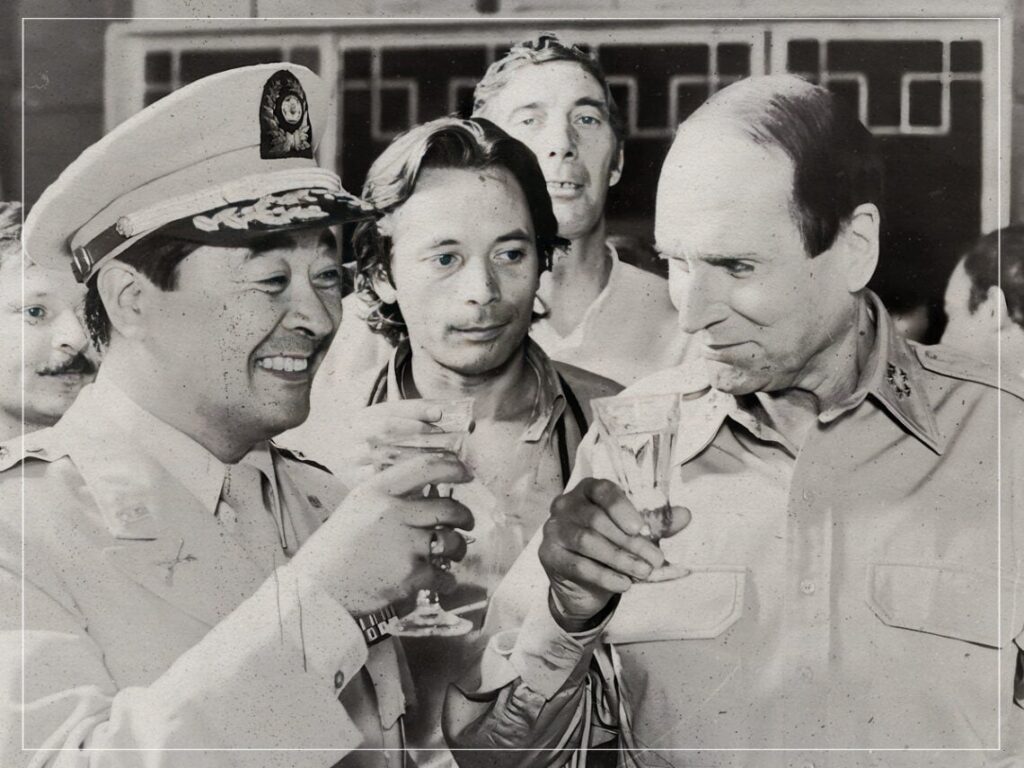‘Inchon’: The notorious flop funded by a cult and endorsed by the spirit realm
 Posted On
Posted On
(Credits: Far Out / One Way Productions)
One person’s religious organisation can often be another’s cult, but when it came to the creation of a movie that fared so badly it ended up as the biggest flop of the entire decade, all of those financial losses could have been avoided entirely had the spirit realm opted not to sign off on the production.
Giving veto power to the dead is an interesting way of filmmaking, to say the least, but that’s just one small aspect of the all-around outlandishness that followed Inchon at every turn. A vanity project on a colossal scale that ended in an equal amount of embarrassment, the founder of a controversial group ended up with egg all over their face when their gambit backfired spectacularly.
Since its founding in 1954, Sun Myung Moon’s Unification Church had been a regular talking point in the religious world. In fairness, the cult accusations had been there since the very start, which comes with the territory whenever a former electrical engineering student declares himself to be a messianic figure and positions himself and his wife as the figureheads followers bowed down to and referred to as the ‘True Parents’.
Not-so-affectionately dubbed ‘Moonies’, the sect came under fire not only from scholars and historians after its leader dubbed himself the second coming of Jesus Christ. There were allegations of financial exploitation of its members, which may or may not have at least partially contributed to Moon’s extracurricular activities as a well-funded entrepreneur and philanthropist of certain causes.
Either way, he’d formed One Way Productions in 1974 with the intention of cracking the movie business, with newspaper magnate Mitsuharu Ishii installed as its public-facing figurehead, with Moon intentionally obscuring his involvement so as not to stir up any negative publicity. That obfuscation lasted until Inchon was heading towards release, too, where he was credited as a ‘special advisor’ to the film.
Moon funnelled $30million of his own—or the Unification Church’s—money into the film, with additional funding coming from the associate producer, wealthy benefactor, and church member Robert Standard. That being said, one major stumbling block in retelling the story of how Douglas MacArthur and the United States armed forces staged their assault during the titular battle hinged on the approval of its subject.
The downside was that MacArthur had passed away in 1964, but Moon would not be deterred. To get the OK from those on the other side of the mortal plane, famed psychic and astrologer Jeane Dixon was asked to communicate with the netherworld to make sure the former general was fine with a pivotal moment in his life and career being turned into a major motion picture.
Fortunately, not only did MacArthur endorse Inchon from the spirit world, but he also personally recommended Dr. No, Thunderball, and From Russia with Love director Terence Young as the ideal person to wield the megaphone, a decision both of them presumably ended up regretting.
Laurence Olivier only accepted the role because it paid very well, so he didn’t care how things turned out, and after racking up $46m in production costs, Inchon barely even cleared $5m in ticket sales. It was a self-indulgent folly to a bleakly hilarious degree, with MacArthur left to rue the day his disembodied spectre had given the go-ahead to a feature that may or may not have been made in the first place had he not given it the astral thumbs-up.
[embedded content]


